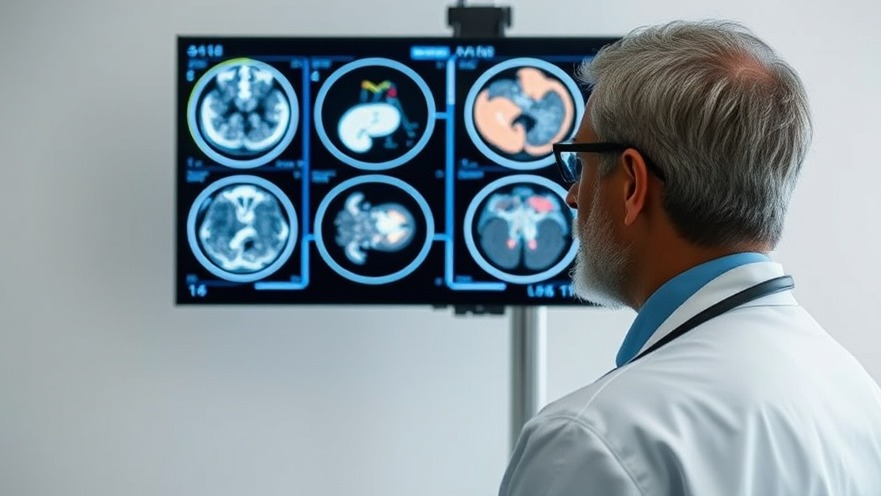
AI Diagnostic Breakthrough: Open-Source Models Lead the Charge
Exciting developments in artificial intelligence (AI) diagnostics are on the horizon, particularly for concierge medical practice owners. A recent study from Harvard Medical School reveals that the open-source AI model Llama 3.1 has matched the performance of the proprietary model GPT-4, signaling a shifting tide in medical technology. As patient privacy becomes increasingly paramount, this breakthrough could provide practice owners with tools to enhance care while maintaining rigorous data protection standards.
Understanding the Significance of Open-Source AI
For years, proprietary AI systems, created by industry giants like OpenAI and Google, have dominated the landscape but raised concerns about patient data security. These models typically operate on remote servers, necessitating the transfer of sensitive data beyond the hospital's control. Conversely, open-source AI, like Llama 3.1, enables practices to host their tools locally, drastically reducing the risk of data breaches. For concierge medical practices focused on quality and personalized care, this technological shift is not just a luxury—it's a necessity.
Examining the Results: A Closer Look at Diagnostic Performance
In the pivotal study published in JAMA Health Forum, researchers tested both Llama 3.1 and GPT-4 on 92 complex cases. The findings were staggering: Llama 3.1 accurately diagnosed 70% of cases, outperforming GPT-4, which managed 64%. Furthermore, in a subset of newer cases, Llama demonstrated an impressive 73% accuracy rate, proving that open-source AI can rival its proprietary counterparts effectively. For concierge practices, these advancements mean potentially faster, more accurate diagnostics that are tailored to their patient demographics.
A Competitive Edge: Customization and Flexibility
One of the most appealing aspects of using open-source models is their customization capability. Unlike proprietary models that offer a one-size-fits-all approach, open-source AI can be modified to fit specific practice needs, ensuring that diagnostic tools evolve along with patient populations. This adaptability not only enhances diagnostic accuracy but can also improve patient satisfaction and trust—key metrics for any successful concierge medical practice.
Financial Considerations: Cost, Support, and Integration
While the allure of advanced technology is undeniable, practical considerations must guide implementation. Proprietary AI systems usually come with customer support and seamless integration into existing systems. However, they also involve ongoing fees, which can strain budgets. Open-source models require in-house technical expertise for deployment and maintenance, but they eliminate many ongoing costs associated with proprietary solutions. As concierge practices aim for sustainable growth, weighing the upfront versus long-term costs of both options is crucial.
The Future of AI in Healthcare: Making Informed Decisions
As AI technology continues to advance, the implications for healthcare will be profound. Concierge medical practice owners need to stay informed about these developments to maintain a competitive edge. Engaging with cutting-edge tools like Llama 3.1 not only enhances diagnostic precision but also aligns with the increasing demand for secure patient data solutions. By adopting open-source AI, practices can ensure they are at the forefront of medical technology while also prioritizing patient care and privacy.
If you’re looking to integrate innovative AI solutions into your concierge medicine practice, now is the time to explore the benefits and implications. Understanding these technological advances can place you ahead in the market, establishing your practice as a leader in both care quality and patient confidentiality.
 Add Row
Add Row  Add
Add 






Write A Comment